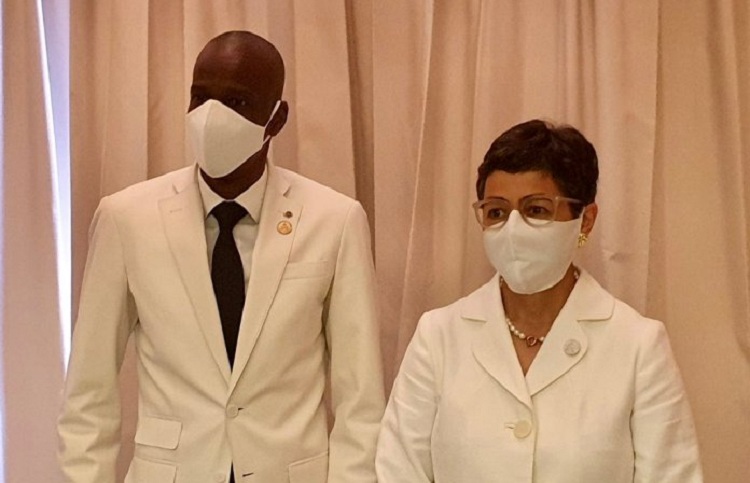The Diplomat
The Spanish government yesterday condemned the assassination of Haitian President Jovenel Moïse, perpetrated on the night of Tuesday to Wednesday in the midst of the political controversy generated in the country by the postponement of elections and by the president’s attempt to introduce a new Constitution that strengthens presidential powers.
“I want to convey our absolute condemnation and our absolute closeness and empathy for Haiti,” said in Riga the President of the Government, Pedro Sánchez, during the joint press conference with the Prime Minister of Latvia, Arturs Krišjānis Kariņš. “We call for the unity of political forces to find a way out of the serious crisis that the country is experiencing”, he said shortly before through his Twitter account.
“I have conveyed to the Prime Minister of Haiti, Claude Joseph, our condemnation of the assassination of President Jovenel Moïse and Spain’s support for the Haitian government and people as well as for the maintenance of constitutional order and the rule of law”, said Foreign Minister Arancha González Laya on her Twitter account.
According to a communiqué from the Haitian acting government, released yesterday by the Caribbean country’s Embassy in Madrid, “in the early hours of Tuesday to Wednesday, a group of unidentified individuals, some of whom spoke Spanish, attacked the private residence of the President of the Republic and mortally wounded the head of state”.
“After condemning this odious, inhuman and barbaric act, the Prime Minister, Claude Joseph, and the CSPN (Superior Council of the National Police) call on the population to remain calm”, the statement continued. “The security situation of the country is under the control of the Haitian National Police and the Haitian Armed Forces and all measures have been taken in order to ensure the continuity of the State and protect the Nation,” it added. “Democracy and the Republic will win”, it concluded.
Jovenel Moïse, born in June 1968 in northeastern Haiti, took office as President on February 7, 2017, after winning the 2016 presidential election in the ranks of the PHTK party. After the electoral victory was confirmed, the Spanish government expressed its support for the “democratically elected president” and its wish that this new stage would allow “the democratic renewal of Haitian institutions”. It also pledged to “continue to collaborate closely with the new Haitian authorities in the democratic consolidation and economic and social development of Haiti”.
On August 16, 2020, Arancha González Laya held a bilateral meeting with Jovenel Moïse in Santo Domingo, in the margins of the inauguration of the President of the Dominican Republic, Luis Abinader. During that meeting, the Haitian president informed the head of Spanish diplomacy of his intention to postpone until 2021 the legislative elections that should have been held in 2019 but were postponed because of the massive protests that paralyzed Haiti for almost three months.
The president’s objective was to make the legislative elections coincide with the presidential and municipal elections, scheduled for 2021. The mandate of the Parliament ended in January 2020 and the president had been governing by decree since then. Besides, the assassinated president had announced his intention to draft a new Constitution that would strengthen the figure of the president, currently subordinated to the Parliament.
In that meeting with González Laya, Moïse asked for “the support” of Spain to carry out “the institutional and constitutional changes necessary to support the holding of these elections”, according to the Spanish minister, who stated that the Spanish government itself had offered this support. On June 28, the Haitian authorities announced that both the presidential and legislative elections and the controversial constitutional referendum will be held on September 26.
Yesterday, the Ministry of Foreign Affairs advised Spaniards currently in Haiti to stay in “a safe place” following the assassination of its president, Jovenel Moise, while reiterating its recommendation not to travel to the country, which has been in force for months due to the pandemic and the emerging situation of insecurity.







